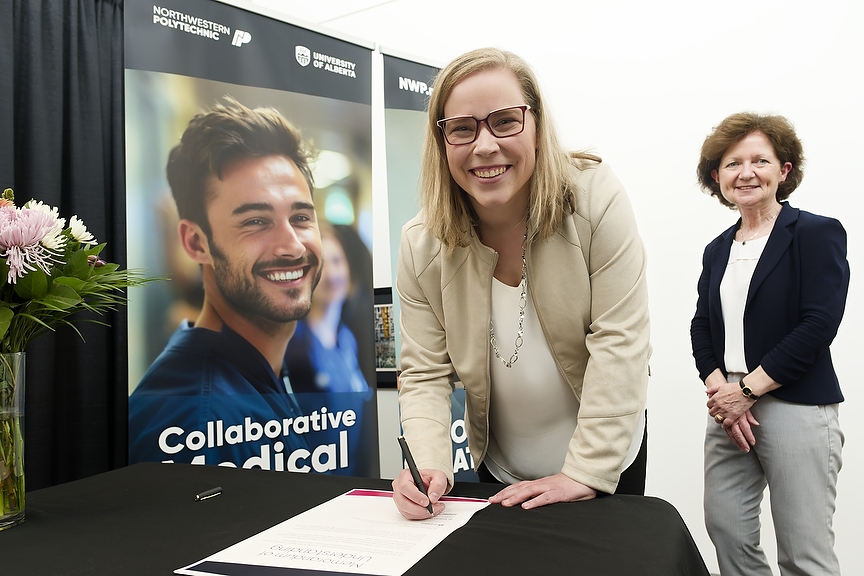
Another step forward in ensuring better healthcare for northern Alberta was made in Grande Prairie on Friday, April 26.
The University of Alberta (U of A) and Northwestern Polytechnic (NWP) signed a Memorandum of Understanding, formally uniting the institutions to bring physician training to Grande Prairie.
“I refer to it as a transformational in both healthcare and education,” said Vanessa Sheane, NWP president and CEO.
“Alberta is one of the few provinces that does not have a distributed medical education model, so currently in Alberta, if you want to be a physician, you need to go to school in Edmonton or Calgary; most other provinces are not like that you can go to other non-big cities.”
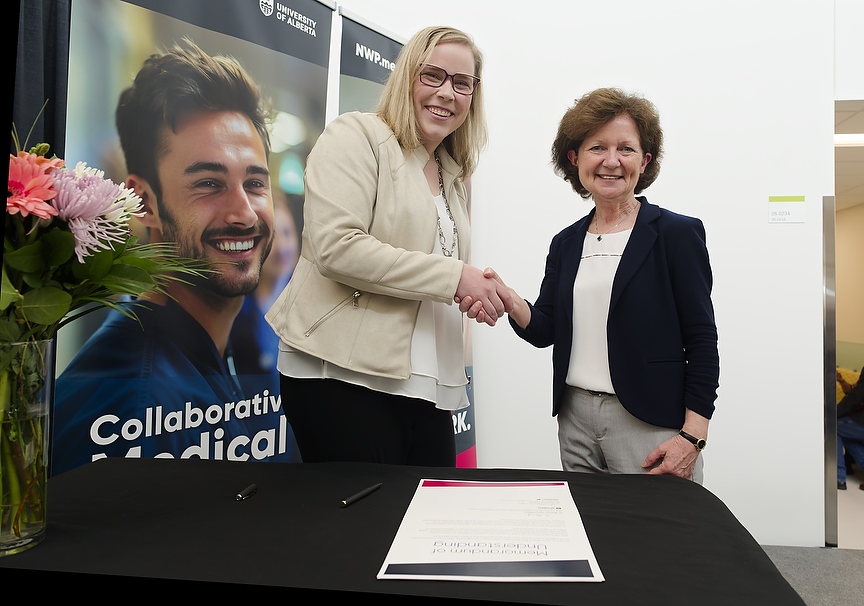
She noted that communities in Northern B.C. have been successful with their partnerships with the University of British Columbia.
“NWP has worked diligently to find innovative solutions to address our needs and bring rural physicians to address the crisis in our area,” said City of Grande Prairie Mayor Jackie Clayton. “The rural medical education program training not only will offer a strong draw for students but a chance to retain them in our region.”
NWP and U of A hope to have the first class of 30 medical students begin in the fall of next year.
Medical students will receive accreditation from the U of A while attending NWP, taking classes at the Grande Prairie Campus and using the Health Education Centre in the Grande Prairie Regional Hospital (GPRH).
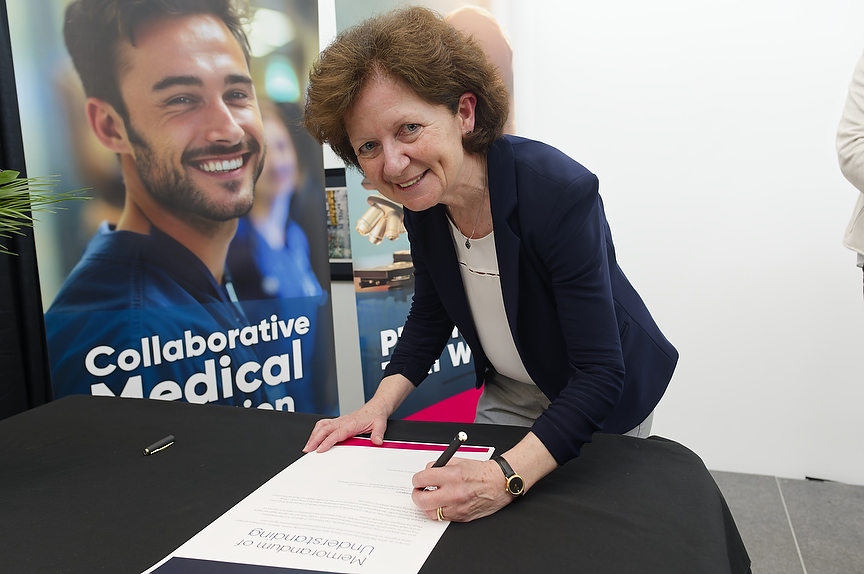
“These students will be recruited locally, trained locally and stay to serve thousands of rural Albertans in the near future, and many will have the honour of providing patient care in their home communities,” said Brenda Hemmelgarn, U of A dean of the Faculty of Medicine and Dentistry.
“We look forward to continuing to work with partners in communities across Northern Alberta to develop clinical placements, which will be equally as important in communities such as Peace River, High Level, and Beaverlodge, to name but a few.”
She said the school is also looking to the future to train other health professionals locally, such as nurse practitioners, pharmacists, physiotherapists and more.
“To truly provide primary health care in a medical home model, you need a wide interdisciplinary nature, and that’s what we aim to do,” said Hemmelgarn.
“If somebody trains in an area, roughly 75 per cent of people stay, so this opportunity here is a huge impact for us both here in Grande Prairie and the surrounding communities,” said Nolan Dyck, Grande Prairie MLA.
Specialist training
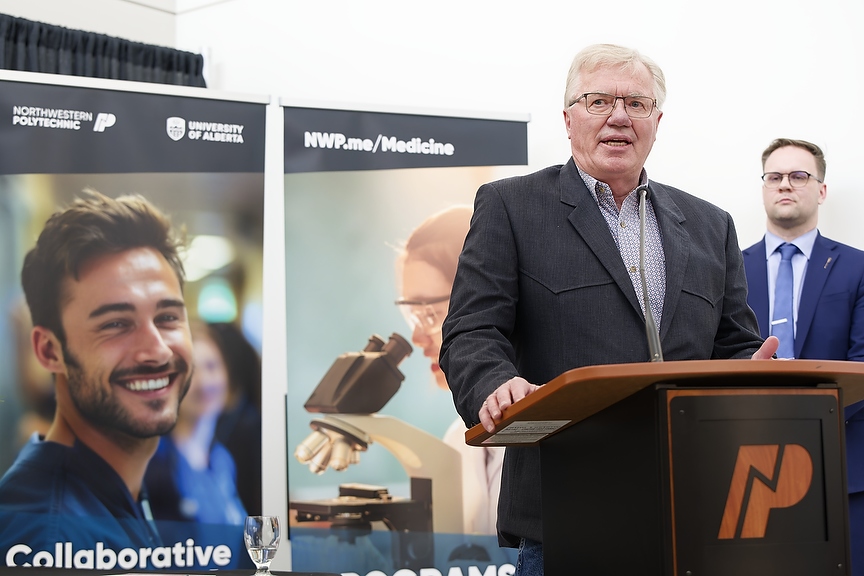
Ken Drysdale, Maskwa Medical Centre’s chairman, announced he hopes to have shovels in the ground this fall to begin construction on the centre just south of the current GPRH.
He said he hopes to complete the centre by 2026 and then have the U of A move in to expand what is taught to physicians locally.
The future three-story building will include a teaching clinic, a restaurant, and a daycare.
“Northern Alberta is fortunate to have a steadfast group of health and education advocates who have proven they can affect monumental change,” said Sheane.
Next steps
NWP will begin working on some upgrades to classrooms to facilitate physician training, said Sheane. She said upgrades to connect to the U of A in Edmonton will be made in the Health Education Centre, and an anatomy lab will be constructed at the Grande Prairie campus.
“We're feeling the pressure,” said Hemmelgarn, noting the fall 2025 intake of first students.
She said the first year of medical school is classroom-based, so the top priority is ensuring that the curriculum is ready and that a rural pathway option is available for July, when admissions will open for the first intake.
She said that even with the short timeframe she is confident they can provide the program through online and distance learning programs if needed.
Expansion to the family residency program will also be coming to the Grande Prairie area, said Hemmelgarn, noting the area currently accepts seven residents and will now be accepting more.
She said physician training is split into two phases: the first phase is a four-year undergraduate degree to get their medical degree, and then residency training, where they do another two years to become family doctors or more for specialties.
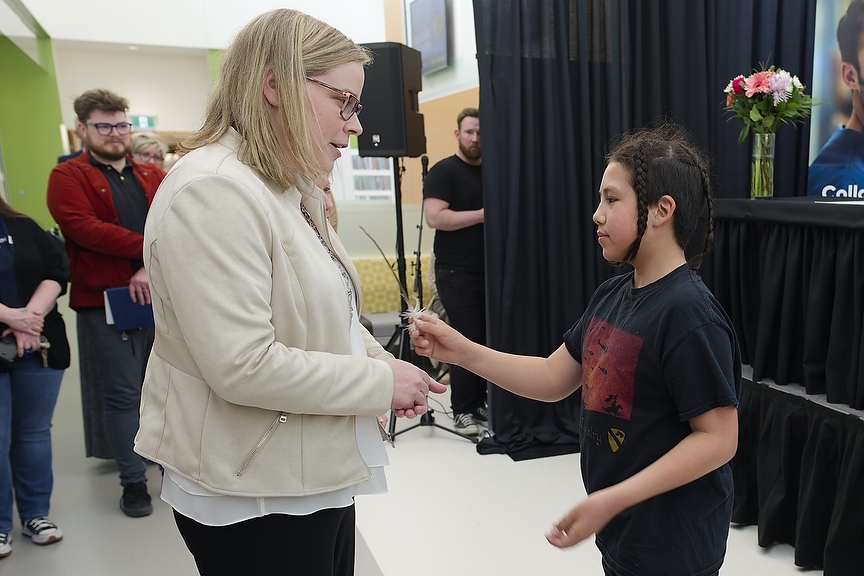
The MOU signing happened at the Health Education Centre and was blessed by local Elder Loretta Parenteau-English.
See next week's issue of Town & Country News for more on the Maskwa Medical Centre.